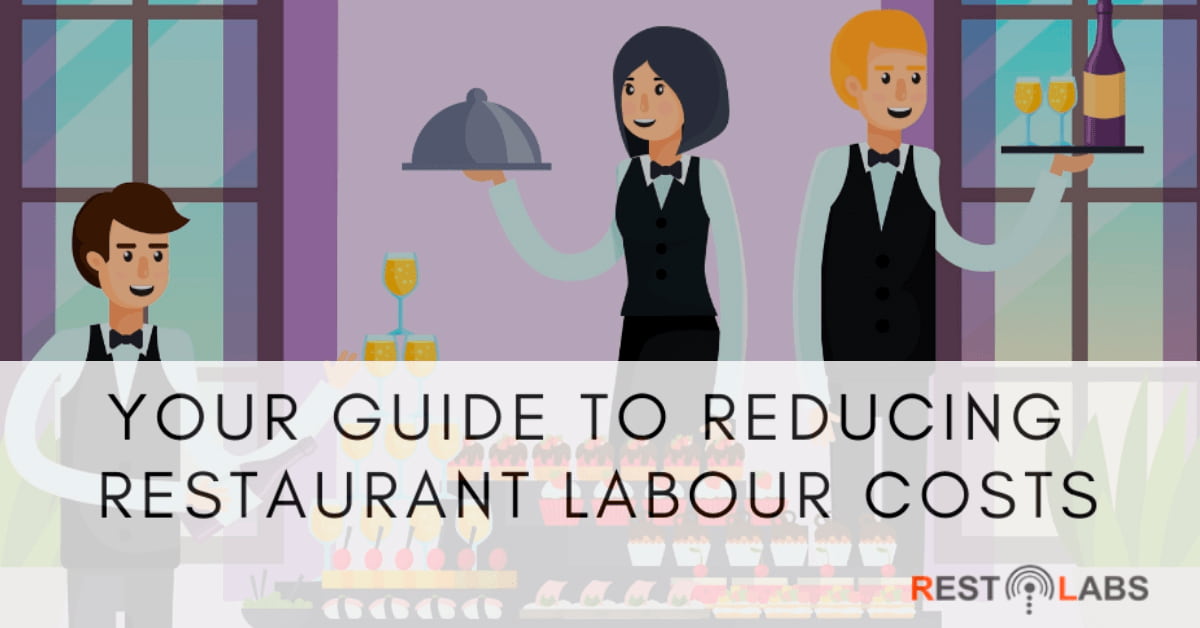Key Takeaways
Restaurants usually have a labour cost to sales ratio of about 22 to 75 percent. Which might not seem a lot to a commoner, but once coupled with kitchen equipment, rent and maintaining a fully-functioning restaurant, it can become an investment intensive business.
For restaurant owners looking to reduce costs, usually the cut happens from labour costs only. But, that isn't the way to go, a clamp down or retrenchment of a few front house people might discourage the restaurant staff. Here's a small list of five things that can help you reduce labour costs but still keep your staff morale high.
How to calculate labour cost -
Every restaurant pays their restaurant staff differently. There may be an hourly wage your restaurant might adhere to, or simply an annual package that you give out when hiring new staff.
This way, there should be two ways to calculate labour costs -
On an excel sheet, you mention the names of all employees. Once done, you can mention the hours worked and calculate their wage accordingly.
Secondly, if your restaurant goes by an annual package, you can just divide the package by 12 to get a monthly wage and then divide by 30 to get per day wage.
Once you have zeroed in on your costs, it's time to look at ways to keep them at the minimum.
Have a look at the menu -
When looking to reduce costs, reconsidering your menu might be a good idea. Menus in general need to be update on a regular basis, to ensure customers have something new to try and come back to.
But, incase there's a menu item that isn't ordered enough and you are paying someone a hefty amount for it, it's a sound idea to do away with it, and make smart business decisions. Similarly, any menu item that might be causing a lot of strain on the back house or involves a lot of front house involvement, can be removed.
Cross training restaurant staff -
It's a wonderful idea for a rainy day. Staff shortage won't be much of a problem if the restaurant staff is skilled enough to handle different jobs.
Ensuring that your staff can handle multiple responsibilities and has an idea about multiple things in a restaurant, makes them think that the restaurant values them enough to cross train.
Something like this, also increases the feeling of being 'one' with the team and having someone's back when they face trouble.
Reducing attrition rate -
Attrition rates in the hospitality industry is one of the highest across all industries. There sure are many outside factors to blame for it like long working hours, strange working conditions, and low pay scale. But, as a restaurant, you should work to retain as many people as possible because of how familiar they’d be to the business.
Which is why, incentives, appraisals go a long way in ensuring the employees remain loyal and dedicated to the brand they are working with. Even non-monetary gifts like employee of the month, extra holiday at the end of the month for good performance, go a long way in ensuring retention of employees.
Salary structure -
Salary and monetary rewards are usually of prime importance when considering a job. Which is why, when hiring for new employees, salary structure has to be organised, clear and impressive.
The best alternative is to have an incentive heavy appraisal structure, that motivates employees to perform their best. Along with that, bonuses at the end of the year, based on profit sharing basis will also make employees work for more while actively contributing for the business. After getting their fair share of monetary incentive, they are more likely to not feel neglected and retention would be higher.
Investing in auto, tech, equipment and design -
Restaurant industry has grown leaps and bounds with regards to incorporating technology. There are POS systems, online ordering systems, reservation systems, order tracking GPS systems, AI being used in kitchens, self-ordering kiosks and the list is endless.
Restaurant technology maybe close to replacing robots with restaurant staff, but replicating human touch is a far-fetched dream. So, any restaurants should invest in basic technology to aid the restaurant staff in their daily handling.
For example, having an online ordering system and/or a POS system makes order taking and processing more seamless. It reduces chaos, pressure on employees and ensures accuracy of orders. Similarly, having an online reservation system saves having a dedicated restaurant personnel responsible for seating guests when they arrive.
Are you thinking of investing in restaurant technology? Talk to the experts at www.Restolabs.com/contact-us and know your needs as well as their solutions in detail.
Frequently Asked Questions


.gif)


